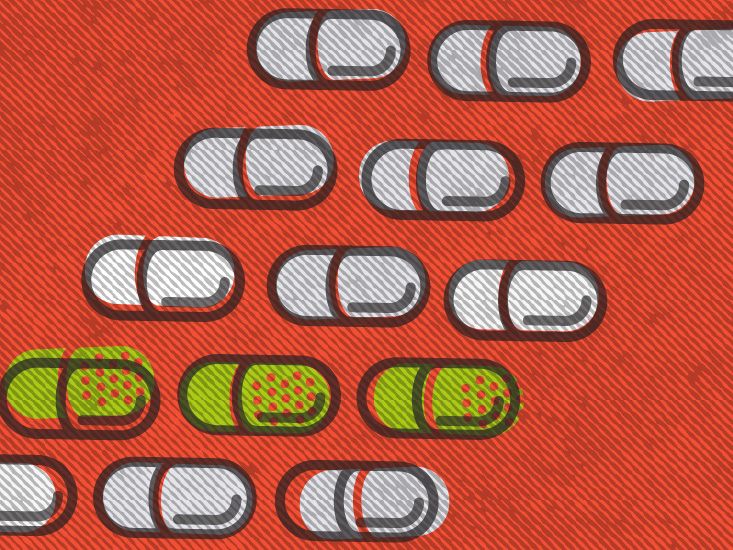Understanding Crohn's Disease
Crohn's disease is an inflammatory bowel disease that causes inflammation of the digestive tract. It can affect any part of the gastrointestinal tract from the mouth to the anus but most commonly occurs in the ileum or colon. Symptoms include abdominal pain, diarrhea, fatigue, weight loss, and malnutrition.
Crohn's is a chronic autoimmune condition where the immune system attacks the body's own healthy cells, causing chronic inflammation. It can run in families and often starts between the ages of 15 to 35. There is no known cure so treatment focuses on managing symptoms and preventing flare-ups.
Crohn's Disease and Weight Loss
Many people with Crohn's disease struggle with weight loss and poor nutrition because the disease interferes with the body's ability to digest food and absorb nutrients properly. Causes of weight loss include:
- Loss of appetite
- Abdominal pain and diarrhea after eating
- Malabsorption of nutrients due to inflammation and bowel damage
- Increased calorie needs from inflammation
As a result, unintended weight loss is common. This can lead to malnutrition and nutritional deficiencies that further worsen symptoms.
Health Risks of Weight Loss with Crohn's
Weight loss, malnutrition, and low muscle mass associated with Crohn's disease increase the risk of additional health problems including:
- Weakened immune system and increased infections
- Loss of bone density and osteoporosis
- Fatigue and reduced muscle strength
- Impaired wound healing
- Electrolyte imbalances
Unintended weight loss should be addressed with proper treatment and nutritional support to help improve prognosis and quality of life.
The Role of Wegovy for Weight Loss with Crohn's
Wegovy (semaglutide) is a glucagon-like peptide-1 (GLP-1) receptor agonist medication originally approved for chronic weight management in obese or overweight adults. It helps regulate appetite and food intake, leading to reductions in body weight.
More recently, research has shown Wegovy also significantly decreases cardiovascular risk in people with obesity and pre-existing heart disease. This led to an additional FDA approval for reducing heart-related events in high risk populations.
For those with Crohns disease struggling to maintain a healthy weight, Wegovy may help improve body composition and reduce some of the health risks associated with weight loss and malnutrition in the following ways:
- Increasing feelings of fullness and satisfaction after eating, allowing better tolerance of meals
- Regulating appetite signals to help rebuild nutrition intake
- Promoting weight gain to reach a healthy goal weight
- Reducing inflammatory markers associated with Crohns flare-ups
- Improving cardiovascular risk factors worsened by weight loss
Clinical Research on Wegovy for Crohn's Patients
While Wegovy is not yet FDA approved to specifically treat weight loss related to Crohns disease, initial clinical studies suggest it may provide benefits:
- A small 2020 study in 12 patients found Wegovy was well tolerated and improved nutritional status and body composition in those with Crohns disease.
- Another 2020 case study reported significant weight gain with Wegovy in a Crohns patient who had lost weight due to intestinal resection surgery.
- Ongoing studies are further evaluating the efficacy and safety of Wegovy for weight loss and malnutrition in Crohns patients.
This early research demonstrates the potential for Wegovy to help Crohns patients struggling with weight management. Larger, long-term studies are still needed.
Considerations for Using Wegovy with Crohn's
While Wegovy may benefit some Crohns patients, there are important factors to discuss with your provider when determining if it is appropriate for your individual care:
Crohn's Severity and Symptoms
Wegovy may not be suitable for everyone with Crohns disease. Those with mild to moderate, stable disease are more likely to tolerate it than those with severe, uncontrolled inflammation who cannot eat normally.
Nutritional Needs
Work with a dietitian to ensure you meet all nutritional requirements when using Wegovy for weight gain. Higher calorie diets with sufficient protein are often needed to restore weight.
Other Crohn's Medications
Consider potential medication interactions. Wegovy delays stomach emptying which could impact absorption of some oral Crohns drugs. However, its own absorption is not affected.
Cardiovascular Benefits
The heart benefits of Wegovy could be particularly advantageous for Crohns patients facing increased cardiovascular risks from inflammation, corticosteroid use, or malnutrition.
Side Effects
As with any medication, Wegovy can cause side effects like nausea, vomiting, diarrhea, and abdominal discomfort. These may be tolerated differently in someone already managing Crohns symptoms.
Long-Term Use
More data is still needed on the safety of Wegovy for long-term use beyond 1-2 years. Durability of weight gain effects when stopping treatment also requires further study.
Wegovy Injection Instructions and Dosing
If prescribed Wegovy, your provider will explain how to properly inject it at home using the prefilled pen device. The medication is given as a subcutaneous injection into areas like the abdomen, thigh, or upper arm.
Starting Dose
Treatment begins at a dose of 0.25 mg once weekly for four weeks. This helps minimize side effects like nausea as your body adjusts.
Maintenance Dose
After the starting period, the dose increases to 0.5 mg weekly for four weeks, then increases again to 1 mg weekly for the maintenance phase. Higher doses up to 2.4 mg may be prescribed if needed.
Missed Doses
If you miss a weekly dose, administer it as soon as possible within 3-4 days. You may need to move your day of the week forward to stay on schedule. After more than 3-4 days, skip the missed dose.
Storing Wegovy
Wegovy pens should be refrigerated but can be kept unrefrigerated for up to 4 weeks before use. Do not freeze. Protect pens from heat and light until you are ready to inject.
Lifestyle Changes to Complement Wegovy
While Wegovy can help regulate appetite and promote weight gain, lifestyle changes are also important for managing Crohns disease and improving nutrition:
- Eat smaller, more frequent meals - Large meals can trigger symptoms.
- Stay hydrated - Drink water and avoid caffeinated beverages.
- Limit high-fiber foods - Fruit skins, popcorn, seeds and nuts may worsen diarrhea.
- Avoid problem foods - Keep a food diary to identify triggers.
- Take supplements - Correct nutritional deficiencies with multivitamins.
- Exercise regularly - Light activity helps reduce inflammation and improves muscle mass.
Discuss specific diet and lifestyle changes to optimize your Crohns disease management with your healthcare providers.
The Future of Wegovy for Crohn's Disease
While more research is still needed, Wegovy and other GLP-1 drugs appear promising for helping Crohns patients struggling with weight loss and malnutrition. In the future, medications like Wegovy may become more common treatments to improve nutrition and reduce complications in chronic inflammatory bowel diseases.
FAQs
Can Wegovy help with weight loss from Crohn's disease?
Early research suggests Wegovy may help Crohn's patients gain and maintain weight by increasing feelings of fullness and regulating appetite signals.
What are the risks of using Wegovy with Crohn's?
Potential risks include side effects like nausea and diarrhea. There could also be interactions with other Crohn's medications. More data is needed on long-term safety.
How is Wegovy administered?
Wegovy is injected subcutaneously once per week using a prefilled pen. The dose starts low and increases over time up to a maximum maintenance dose of 2.4 mg.
Does Wegovy treat the underlying Crohn's disease?
No, Wegovy does not treat the inflammatory causes of Crohn's itself. It aims to improve secondary weight and nutrition issues associated with Crohn's.
Disclaimer: This article is for informational purposes only and does not constitute medical advice. Always consult with a healthcare professional before starting any new treatment regimen.
Related Coverage
Varicose veins indicate poor circulation that can lead to cardiovascular issues like high blood pressure and arrhythmias causing heart palpitations....
Cut the Camzyos cost with smart insurance steps, $10 copay programs, free echo assistance and foundation grants—start saving now....
If you notice sudden indentation on your arm, it may signal heart disease. Learn about the connection between arm dents and clogged arteries, and what to do....
Wegovy shows potential to help Crohn's disease patients struggling with unintended weight loss, malnutrition, and cardiovascular risks....
Heart disease can manifest through surprising physical signs like skin changes, swelling, vision issues, and more before diagnosis. Learn subtle symptoms....
Unmanaged high cholesterol can manifest in yellow growths, eye rings, earlobe creases, and other skin changes. Learn to recognize these facial signs prompting medical evaluation....
Intermittent fasting may impact heart health positively or negatively. Find out how it affects your cardiovascular system and what’s safest for you....
Find out how mitral valve prolapse presents, when to seek help, treatment options, and tips for living a healthy, active life....
Find out the signs, causes, diagnosis and treatment for mitral regurgitation, plus lifestyle tips to support a healthier heart....
Heart valve regurgitation can cause breathlessness, fatigue, and swelling. Learn causes, symptoms, diagnosis and treatment options....






